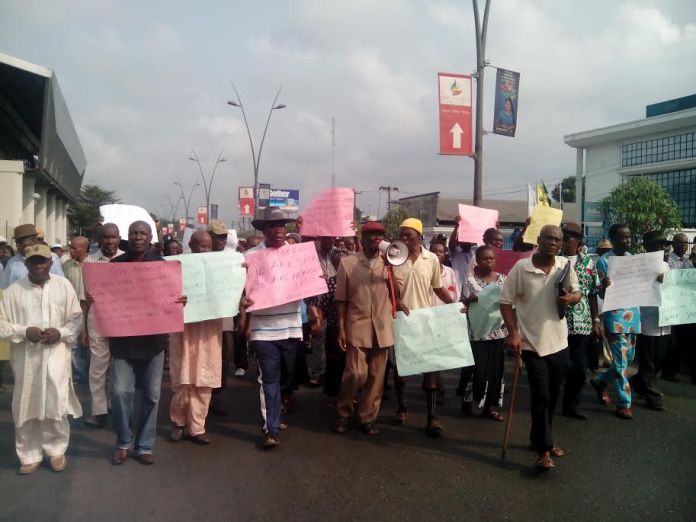By: Rowland Udoh
Akwa (Abasi) Ibom State, is named after God and the people inhabiting the enclave enshrined in the Constitution of the Federal Republic of Nigeria 1999 (as amended), appear very religious. Some people are excited to attend ederi (church) every Sunday. As a matter of fact, they can be likened to the people of Athens who Apostle Paul in Acts 17: 22 tagged “most religious.”
Most Akwa Ibom people name abasi for several things if they be not in the ederi fashion. They have abasi enyong (god of the sky or heavens), abasi isong (god of the earth or land), abasi ukot (god of the in-laws), abasi eyeyen (god of the grandchildren), abasi iman (god of the relatives/extended families), among others.
In today’s world of secularism, they are largely operated in the breach. While ecumenism is being preached globally, here schism is what thrives.
Like the people of Athens spoken from Mars Hill, so have successive government regimes in Akwa Ibom spoken from the Hiltop Mansion, even with a chapel to go with it for monthly gathering “In God’s Name,” to borrow from David Yallop the novelist.
In the era of Divine Mandate, no less. Yet, the signs of what Prophet Micah of the Bible days cried against are still very much with us. Micah 3:11 reads, The heads thereof judge for reward, and the priests thereof teach for hire, and the prophets thereof divine for money: yet will they lean upon the LORD, and say, Is not the LORD among us? none evil can come upon us.
What then is the role of the people? Micah 6:8-12 says He hath showed thee, O man, what is good; and what doth the LORD require of thee, but to do justly, and to love mercy, and to walk humbly with thy God? “For the rich men thereof are full of violence, and the inhabitants thereof have spoken lies, and their tongue is deceitful in their mouth.
This brings this piece to Romans 13:1-10 Let every soul be subject unto the higher powers. For there is no power but of God: the powers that be are ordained of God.
- For rulers are not a terror to good works, but to the evil. Wilt thou then not be afraid of the power? do that which is good, and thou shalt have praise of the same. v 4. For he is the minister of God to thee for good. But if thou do that which is evil, be afraid; for he beareth not the sword in vain: for he is the minister of God, a revenge to execute wrath upon him that doeth evil.
v6. For for this cause pay ye tribute also: for they are God’s ministers, attending continually upon this very thing.
v7. Render therefore to all their dues: tribute to whom tribute is due; custom to whom custom; fear to whom fear; honor to whom honor.
v8. Owe no man any thing, but to love one another: for he that loveth another hath fulfilled the law.
v 10. Love worketh no ill to his neighbour: therefore love is the fulfilling of the law.
These scriptures underscore the issues that surround the management of pension and gratuity benefits of retired government workers who had worked and taxes were deducted from their earnings while in direct government service.
Regretably, in their old age there is no adequate concern to give succour to these ones in a state economy that largely depends on the expenditure capacity of these former 8 a.m. to 4 p.m. workforce. While developmental projects and the consequent payments to contractors may sound or seem valuable to current operators of state machinery irrespective of regime, a timely introspection would allow even one budget cycle projects delay would more than pay for the arrears of pensions and gratuity benefits.
In fact, the prayers of these numerous beneficiaries would more than compensate and promote overall success for such an administration. After all, the Holy Book says, the fervent prayer of a righteous man availeth much.
John the Baptist, admonished in Luke 3: 8 Bring forth therefore fruits worthy of repentance, and begin not to say within yourselves, We have Abraham to our father: Then came also publicans to be baptized… And he said unto them, Exact no more than that which is appointed you. And the soldiers likewise demanded of him, saying, And what shall we do? And he said unto them, Do violence to no man, neither accuse any falsely; and be content with your wages.
The use of brutal force to disperse aggrieved pensioners and their relatives should be discouraged and condemned. Paying deaf ears to payment of pension arrears and gratutity to pensioners in Akwa Ibom public service and primary school system should be discouraged. Let us arise (da kaada) and be our brother’s keeper.

